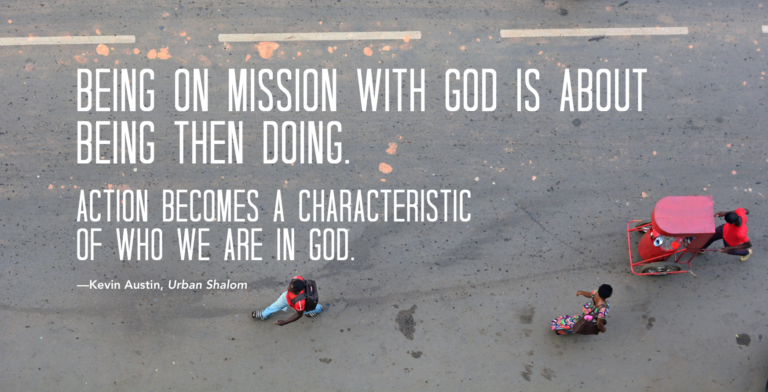Whose Job is it to Address Labor Trafficking?
Lola was 18 years old when she was "gifted" as a domestic helper to a Filipino family immigrating to the United States. Her story headlined the June 2017 edition of The Atlantic, told from the perspective of one of the sons who was about 11 of 12 years old when he made a disillusioning discovery: that Lola was, in fact, their family's slave.Slavery seems like it should be a black-and-white issue. And yet, the distinction between a "willing" and "forced" worker is often blurred. The degree of legal protection and enforcement, socioeconomic factors, migration, and language barriers may influence the legitimacy of the employment situation. In Lola's case, the risk of deportation, unfamiliarity of American laws and culture, and the false, unmet promise of being paid enough to support her family back in the Philippines kept Lola dependent on the family she served. Some industries are better regulated than others. Domestic slavery is one of the most difficult forms of labor exploitation to monitor, especially because it occurs behind the doors of private homes. But exploitation and human trafficking is found even in more "public" industries: landscaping and construction, hotels and restaurants, forestry and logging, and more. And it ignores geographic boundaries - it happens everywhere from Delhi to Dubai to Detroit. Maybe you don't have a domestic helper in your household ... but could you have a Lola in your neighborhood? Could the person waiting on your table at your favourite Chinese restaurant, or the construction crew pouring cement on your street be victims of labor exploitation? The truth is that modern-day slavery is prevalent in the United States today, even more so than during the civil war (see Kristof's assessment in Half the Sky for more details). It's also highly insidious. Watch the video below to find out how it happens right under our noses:
There is no question that slavery's presence is rampant and the need is dire. So whose responsibility is it to intervene?
Doing Our Part
When yet another human rights abuse flashes across your TV screen or social media feed, who do you immediately want to hold accountable? The perpetrators, of course - but at some point, you'll probably come to the conclusion that the government needs to do more. That justice issues can't change unless institutions do. And that is true - but it's also incomplete. We do need influencers of law. We need people in positions of political power who can reform the legal systems that inadvertently perpetuate labor exploitation. For example, in the U.S., when an immigrant's legal status is tied to their employer, it creates a power imbalance that makes them vulnerable to abuse and exploitation (read more here). In Belarus, forestry workers and farmers are forbidden to leave their jobs at will. Migrant workers in Qatar have little protection, even when working for an unscrupulous employer. In the case of exploited Chinese factory workers (see below), it is clear that overtime and minimum wage legislation needs to be better enforced.  But it's not just up to lawmakers.It's not only within the power of governing officials to intervene.The power is ours, too. We need businesses. From large corporations to mom and pop shops, we need corporate leaders who treat their employees with dignity and make an effort to use and sell ethically-sourced goods. We need social enterprises like Thistle Farms and Freedom a La Cart that employ survivors. We need companies like Camano Island Coffee that fairly pay their workers, respect the environment, and give a portion of their profit to anti-trafficking efforts. We need informed consumers. We need people who know how the products we eat and wear and use are either a vote for or against the freedom of the person who made them. We need to be aware of the power we hold when we refuse to finance slavery and choose to buy goods produced by companies with fair labor standards instead. We need activists - people like you and I - who take our civic duties seriously. We can lobby for better laws. We can vote for political leaders that prioritize immigrants, refugees, and other groups who are most susceptible to labor abuses. We can campaign for companies to be transparent about the presence of child labor in their supply chains.
But it's not just up to lawmakers.It's not only within the power of governing officials to intervene.The power is ours, too. We need businesses. From large corporations to mom and pop shops, we need corporate leaders who treat their employees with dignity and make an effort to use and sell ethically-sourced goods. We need social enterprises like Thistle Farms and Freedom a La Cart that employ survivors. We need companies like Camano Island Coffee that fairly pay their workers, respect the environment, and give a portion of their profit to anti-trafficking efforts. We need informed consumers. We need people who know how the products we eat and wear and use are either a vote for or against the freedom of the person who made them. We need to be aware of the power we hold when we refuse to finance slavery and choose to buy goods produced by companies with fair labor standards instead. We need activists - people like you and I - who take our civic duties seriously. We can lobby for better laws. We can vote for political leaders that prioritize immigrants, refugees, and other groups who are most susceptible to labor abuses. We can campaign for companies to be transparent about the presence of child labor in their supply chains.  We need good neighbors. We need people like you to invest in your community. The way you interact with others - the immigrant family that moved in next door, the door-to-door salesperson, the person who bags your groceries - is vitally important. Ask good, sometimes hard questions. If you see something that doesn’t seem quite right, carefully investigate, then call the authorities. We are our brothers and sisters keepers! We need coaches and educators. We need teachers and professors who encourage their students to think critically about their world, especially about the ripple effect of the decisions we make: the things we buy, the weight of our vote, the way we treat others. We need more organizations like Verité that train individuals and companies on addressing unethical supply chain practices. We need whistleblowers. We need researchers and academics, journalists and public speakers who call for changes by exposing hard but vital truths: federal budget cuts to programs seeking to mitigate forced and child labor, human rights abuses in the workplace, global brands built on the backs of abused workers, corrupt governments using labor camps. We cannot form an effective response without knowing the scope of the issue. We do need better laws, not just because they protect those who are vulnerable to slavery but because they represent a particular set of values. Laws that protect immigrants or migrant workers sends a nationwide message to citizens: "we are a country that stands for racial inclusion and dignity for all". Yet we need those values to be reinforced both at the top and at the bottom. And that's why we need the church, too. Because the church is commissioned to carry out God's mission of shalom. Not just in the form of giving to charities or launching programs, but in the 'being', in focusing on the character of God and the example of Jesus. In the new release Urban Shalom, Kevin Austin explains:
We need good neighbors. We need people like you to invest in your community. The way you interact with others - the immigrant family that moved in next door, the door-to-door salesperson, the person who bags your groceries - is vitally important. Ask good, sometimes hard questions. If you see something that doesn’t seem quite right, carefully investigate, then call the authorities. We are our brothers and sisters keepers! We need coaches and educators. We need teachers and professors who encourage their students to think critically about their world, especially about the ripple effect of the decisions we make: the things we buy, the weight of our vote, the way we treat others. We need more organizations like Verité that train individuals and companies on addressing unethical supply chain practices. We need whistleblowers. We need researchers and academics, journalists and public speakers who call for changes by exposing hard but vital truths: federal budget cuts to programs seeking to mitigate forced and child labor, human rights abuses in the workplace, global brands built on the backs of abused workers, corrupt governments using labor camps. We cannot form an effective response without knowing the scope of the issue. We do need better laws, not just because they protect those who are vulnerable to slavery but because they represent a particular set of values. Laws that protect immigrants or migrant workers sends a nationwide message to citizens: "we are a country that stands for racial inclusion and dignity for all". Yet we need those values to be reinforced both at the top and at the bottom. And that's why we need the church, too. Because the church is commissioned to carry out God's mission of shalom. Not just in the form of giving to charities or launching programs, but in the 'being', in focusing on the character of God and the example of Jesus. In the new release Urban Shalom, Kevin Austin explains:
"We aren’t starting with us. We aren’t starting with an analysis of problems then rushing to solutions. We are starting with God, the holy Trinity, a community. It begins with who God is, then who we are in God, then it moves to what we do."
Human trafficking is more than a problem to be solved. Like other forms of crime and exploitation, it is the product of breakdown in our community. Broken relationships are the source of our problems, so healing relationships is where the faith community must begin. Embodying God's character, we start to mend our society's wounds when we welcome the stranger, love the enemy, and reconcile the hurt cause by racial and gender discrimination. We engage in compassionate action - feeding the hungry, housing the homeless, helping the oppressed - while simultaneously helping to shift the harmful belief systems that fuel the mistreatment and abuse of others.  Who do we need to help end modern slavery? Is it the sole responsibility of government, or the church? No. The short answer: we need everybody. We need you. You have gifts and skills and a calling. You are an agent of hope and healing.
Who do we need to help end modern slavery? Is it the sole responsibility of government, or the church? No. The short answer: we need everybody. We need you. You have gifts and skills and a calling. You are an agent of hope and healing.
